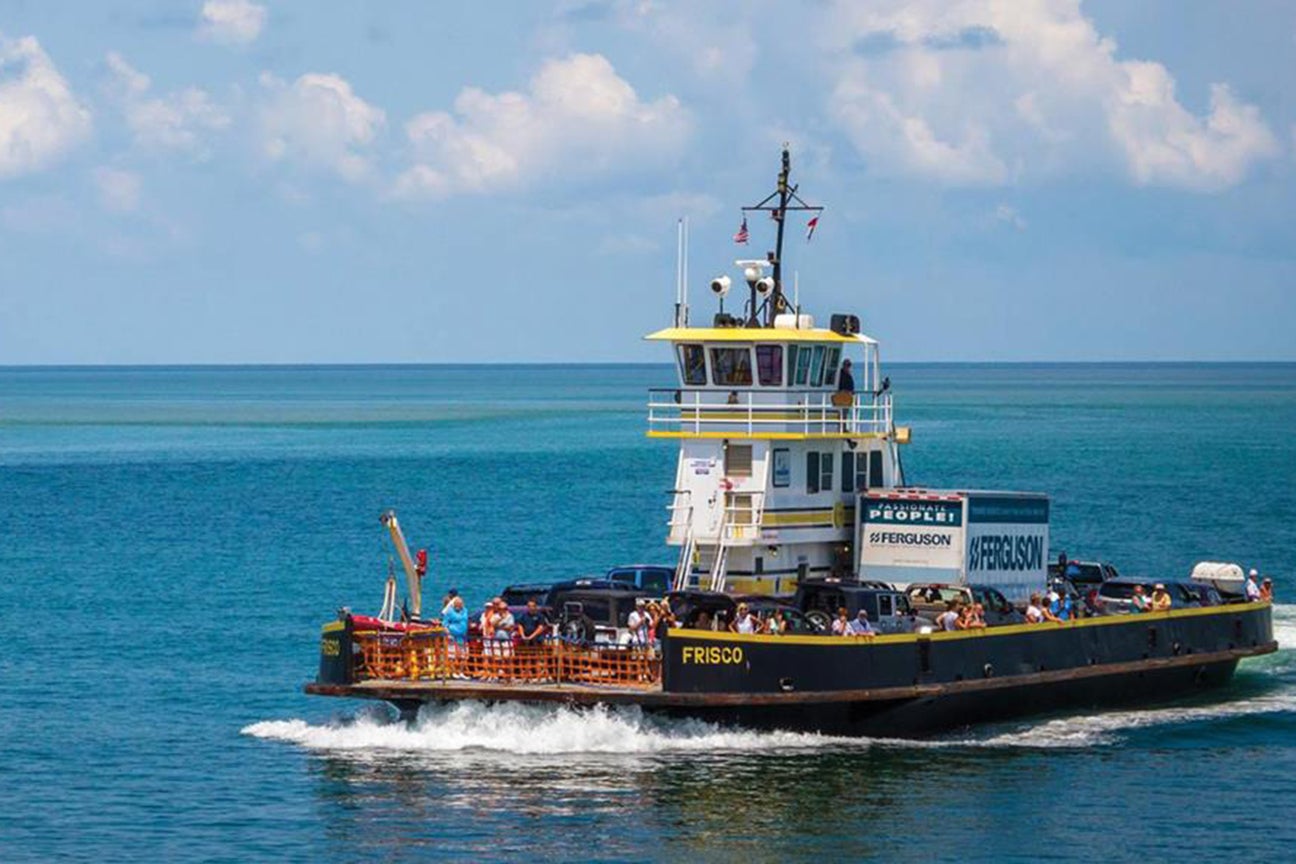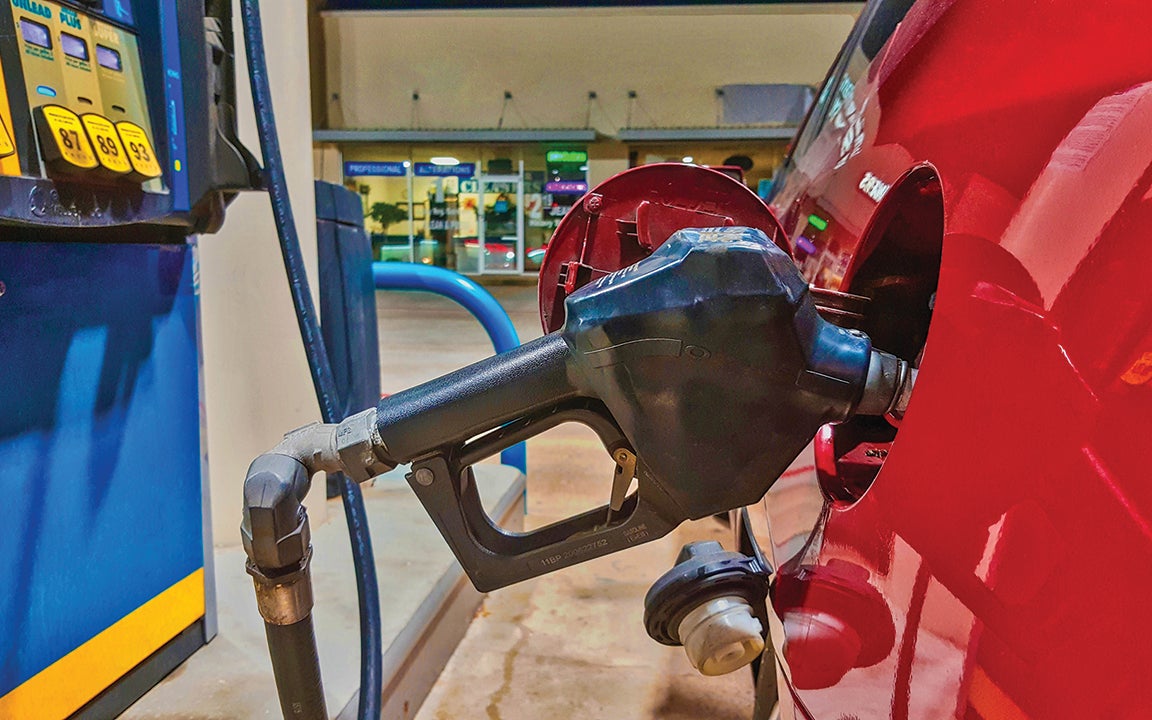State budget includes funding for several local projects
Published 4:56 pm Wednesday, December 1, 2021

- Courtesy NCDOT
|
Getting your Trinity Audio player ready...
|
North Carolina has a two-year state budget.
Governor Roy Cooper and the General Assembly negotiated for at least two months and agreed to what is termed “the Compromise Budget.”
The General Assembly passed the compromise budget with a 41-7 vote in the state Senate and a 104-10 vote in the state House.
Cooper signed the legislation Thursday, Nov. 18, 2021.
The total fiscal year 2022 budget for the state is $25.9 billion; and for fiscal year 2023, $27 billion.
Overall, the first year of the two-year budget, fiscal year 2022, winds up with unappropriated funds totaling $3.41 billion and in the second year, $2.55 billion.
President Pro Tem of the Senate Phil Berger said that at June 30, 2023, the state’s rainy day fund will have a total of $4.25 billion.
Salaries
State government employees and teachers receive a 5% raise, split, with 2.5% in the first year and 2.5% in the second year. State and teacher retirees also receive a 5% increase over two years. All state employees and teachers will receive a $1,000 bonus. An additional $500 goes to teachers and state employees making less than $75,000. An additional $1,000 bonus comes to teachers. Supplemental assistance allotments range from $490 to $4,250 per state-funded teacher in 95 counties. Those counties not receiving the allotment are Buncombe, Durham, Guilford, Mecklenburg and Wake.
A recurring fund of $100 million is set aside to help low-wealth counties with teacher salary supplements.
The minimum wage for non-certified public school employees and community college staff goes to $15 per hour in 2022.
A new salary-based schedule for corrections, probation and parole officers is in place. The schedule results in an average 7% salary increase for correctional offices and 17% raise for probation and parole officers.
Income tax
Personal income tax is cut from 5.25% to 4.99% staring Jan. 1, 2022 and further cut to 3.99% over six years. The budget increases the child tax deduction by $500 per child. It eliminates the state income tax on military pensions and phases out the corporate tax, reports Rep. Keith Kidwell, House Deputy Majority Whip.
Direct allocations to northeastern North Carolina
In the budget, Dare County receives $35 million to move forward with affordable housing projects.
Graveyard of the Atlantic Museum in Hatteras village receives $4.2 million to install permanent exhibits.
Dare Challenge receives $900,000 to help fund its expansion projects.
N.C. Marine Industrial Park Authority receives a $22,000 grant for capital improvements at Wanchese Marine Industrial Park.
The budget provides $425,000 direct grant to Dare County for purchase of eight emergency pumps.
The state’s Wildlife Resources Commission will see $1.5 million to remove abandoned and derelict vessels.
Funding for an additional magistrate in Dare County is included.
The budget allocates $1 million for the Mattamuskeet Restoration Drainage Project.
College of The Albemarle is provided $6.3 million for new construction or rehabilitation of existing facilities.
Hyde County Hotline and Outer Banks Hotline receive increased grants.
The budget allocates $250,000 to Hyde County for capital improvements.
Oyster restoration funds of $2 million go to North Carolina Coastal Federation for grants for living shorelines, oyster reefs and marsh restoration.
The Eastern 4-H Center in Tyrrell County receives a grant of $600,000.
A Rural Tourism Recovery pilot program is allocated $1.5 million for a rural tourism recovery project to be included in, but not limited to, Chowan, Gates, Hertford, Martin, Perquimans, Tyrrell and Washington counties.
Education
The budget addresses school systems’ needs for capital expenditures. A Needs Based Public School Capital Building Fund is created with $528 million from the N.C. Education Lottery. Another $200 million goes to the Public School Capital Fund and a new fund for repair and renovations receives $80 million. Berger’s summary says that over seven years, “a projected $2.6 billion will be spent on school capital projects.”
Transportation
NCDOT Ferry Division is provided $4.2 million to build two new ferries.
The budget provides $3 million for extending service and DMV Driver License Offices.
DMV is authorized for online renewal for permits, license and registrations.
Disaster relief
Disaster Relief and Resiliency has at least $691 million allocated in various programs and projects.
Health care
The budget creates a 2022 joint legislative study committee on health care access and Medicaid expansion.
Direct support personnel wages move to $15 per hour for serving elderly, medically fragile and developmentally disabled folks.
Opioid crisis combated with $16 million.
Rural hospitals receive $5 million and $4 million will be spent to recruit doctors, physician assistants, dentists, nurse practitioners and certified nurse midwives to rural areas.
Military and veterans
Scholarships for children of disabled veterans increased by $2 million.
The budget expands veteran employment preference in state jobs to include National Guard.
No Veteran Left Behind receives $2 million to assist veterans in crisis.
Some controversy
The budget bill prohibits state agencies and the attorney general’s office from settling certain cases and gives the power to the General Assembly. Also, the legislation sets limits on the governor’s power to extend a statewide emergency beyond 30 days. The decision making goes to the Council of State beyond 30 days and the General Assembly beyond 60 days.
The budget legislation includes a section titled Modernizing Selection of Instructional Materials. The four-and-half page section includes the process for challenging instructional materials, including a State Community Media Advisory Committee to receive appeals from local boards of education.






